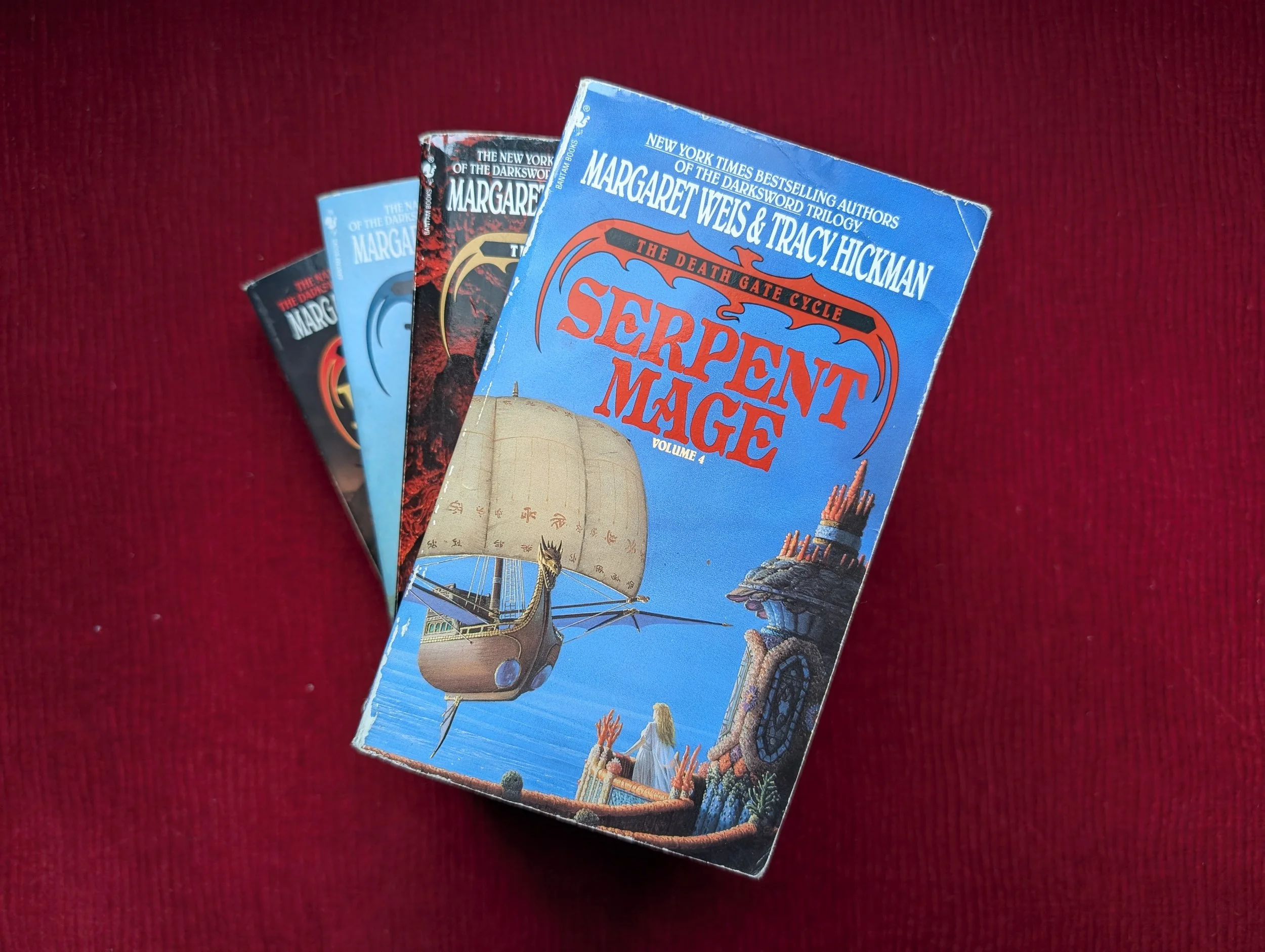A Review: Serpent Mage by Margaret Weis and Tracy Hickman
Weis and Hickman have me hooked now, and I knew re-reading book 4 would strengthen this series’ hold on me. I remembered the impact it had on me, but what I didn’t know was if its power was due to my inexperience with the fantasy landscape when I first read it or if it truly was a masterwork amongst its contemporaries.
What is Sepent Mage About?
On the water world of Chelestra, old enemies are forced into uneasy alliances as ancient secrets rise from the depths. Haplo returns under orders to sow chaos, only to find his loyalties tested by unexpected truths, and Alfred begins to see the cracks in the ideals he once held sacred. As humans, elves, and dwarves struggle to coexist, a far greater threat begins to stir beneath the waves, born not of hatred, but of the unintended consequences of power.
Review
I remembered liking Serpent Mage, but I didn’t remember how hard it hits. Alfred’s disillusionment arc is one of the book’s strongest threads. His gradual unraveling—watching the ideals he once clung to erode in the face of corruption and control—is handled with a deft use of dramatic irony. As readers, we see the truth before he does, which adds a painful tension to every revelation. Haplo’s journey is equally impressive. At first, it seems like he’s regressing, but the story skillfully uses that moment to deepen his arc. His return to growth isn’t a rehash. It’s a confrontation with old loyalties and a genuine test of the progress he’s made.
The worldbuilding continues to shine, though Chelestra was harder for me to visualize than the realms in the previous installments. Early descriptions gave me one image, then shifted in ways that made me question my understanding. By the end, I had circled back to my original impression. That said, it wasn’t the island-water system that stuck with me, but the serpents and the eerie qualities of the water itself, triggering real tension and unease. Few fantasy books make me feel anxious. This one did, and I loved it for that. And I might be sleeping with a light on for a while.
Where Serpent Mage really excels is in expanding the series’ central conflicts. The balance of power between the Sartan, Patryns, and Mensch has shifted in fascinating, unexpected ways. The introduction of a greater evil—an unintended consequence of their centuries-long struggle—turns the entire dynamic on its head. What once seemed like a black-and-white war is now mired in shades of gray, revealing that both sides may have been pawns of something far more sinister.
Is Serpent Mage with Reading?
As the fourth installment, Serpent Mage functions as a turning point in The Death Gate Cycle. It doesn’t just prepare the ground for the final three books—it transforms what we thought the story was about. And for a series already rich with worldbuilding, conflict, and character, that’s no small feat.
I recommend this novel if you’ve read the first three installments. It’s worth continuing on.

